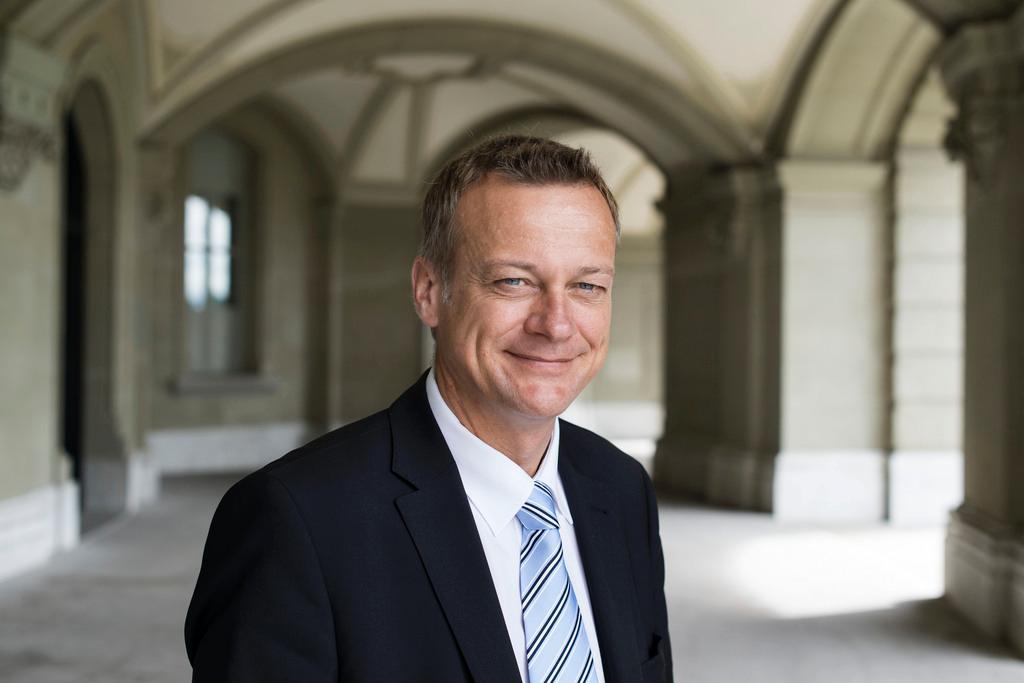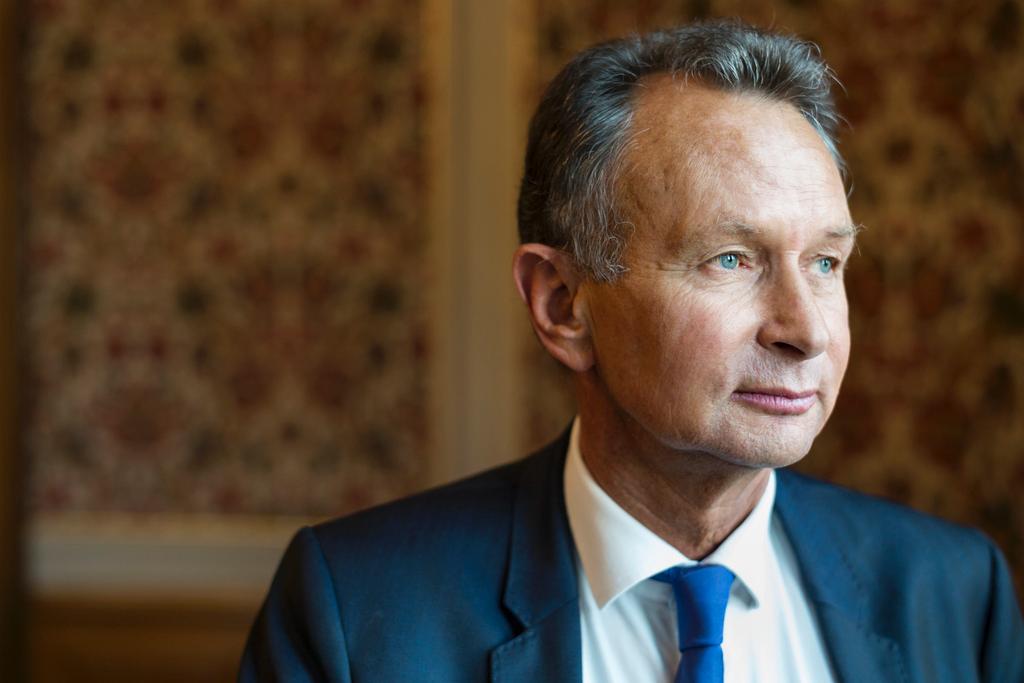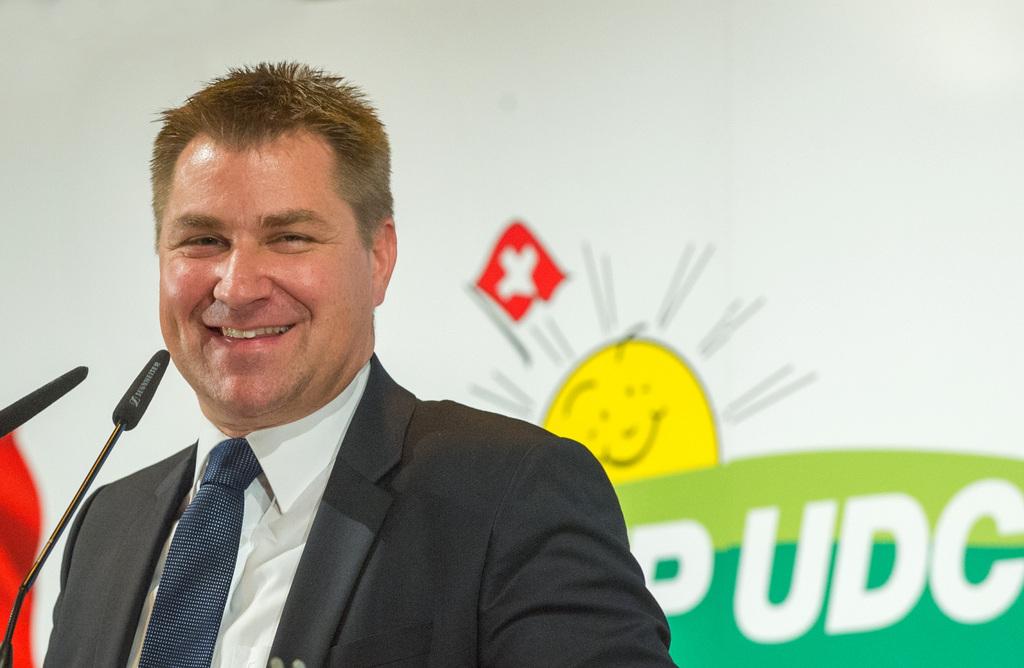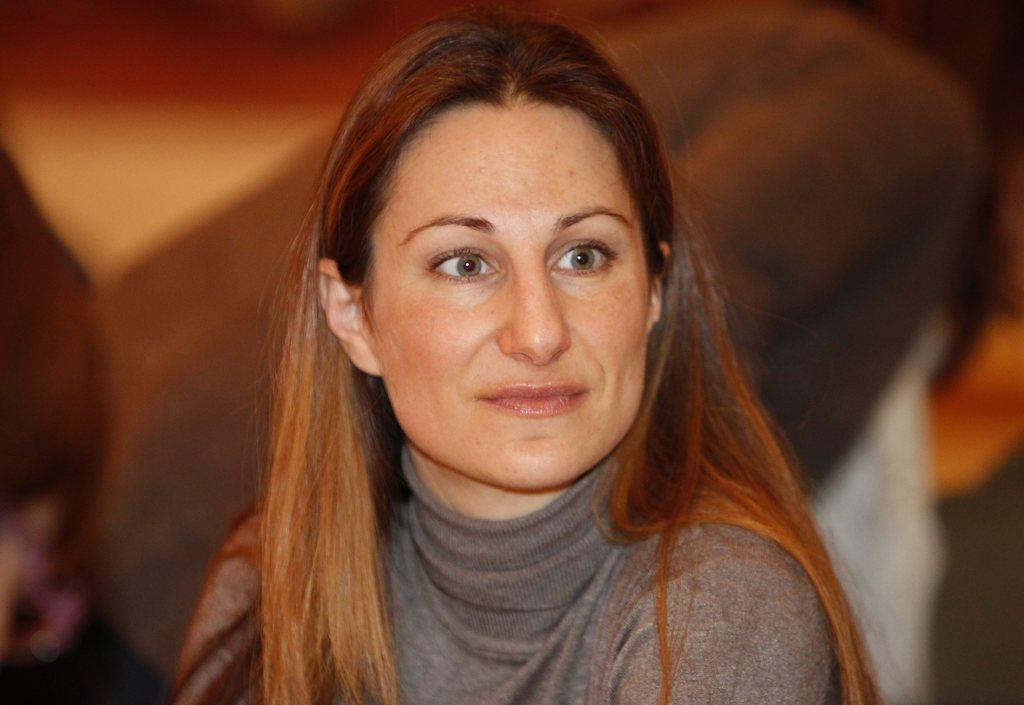‘Renouncing EU bilateral accords would be disastrous’
Safeguarding bilateral accords with the European Union will be essential to maintaining the health of the Swiss economy during the course of the next parliament, argues Christophe Darbellay, president of the centre-right Christian Democratic Party.
swissinfo.ch: What two issues are the main priorities for your party in the next parliament?
Christophe Darbellay: We have to do everything we can to maintain the health of the Swiss economy. The other very important point is the reform of our social institutions, notably the pension system (AVS). I think that will be one of the biggest issues for the next parliament, we can already detect tensions between the parties about it.
swissinfo.ch: The decision of the Swiss to limit immigration has created tensions with the EU and could threaten the bilateral accords. How far is your party prepared to go to save these accords?
C.D.: Saving the bilateral accords is a priority. The EU is our biggest market and our primary supplier, and it will continue to be so for a very long time. I can’t see Switzerland renouncing these agreements; it would be disastrous for the economy and for employment. But there is also a necessity to respect the will of the people who wish to curb immigration a bit. In a democracy, we are obliged to comply with the will of the people.
We have to find a way to reconcile these two things. I have always said that it is like trying to square the circle, but we must succeed. There are only three solutions: discard the bilateral accords – which seems unthinkable to me, interpret the will of the people in a pragmatic way or discard the famous article 121a of the constitution “against mass immigration”. For our part, our proposition consists of a less restrictive safeguard than a quota on immigration, which would be more acceptable to the EU.
swissinfo.ch: One of the big issues at the moment is the strong franc. What do you propose to counter the negative effects of the strong franc on exports?
C.D.: Everyone has put together its package of measures and the Christian Democrats are no exception. But the principle lever is in fact in the hands of the Swiss National Bank (SNB). I don’t think there are a lot of other possibilities.
On the part of the political parties, we really have to concentrate on the framework conditions that will create and conserve employment in this country. We have to continue to play to our strengths and try to reduce or eliminate our weaknesses. That seems to me the best policy to ensure that Switzerland remains in a strong economic position.
The strong franc is a consequence of an economy that is doing well, of the good work that Switzerland has done over the decades. We are now paying the consequences of those good policies, but we should not discard them. We have to continue to defend the independence of the SNB and also recognise that there are some advantages to the strong franc, for example for consumers. In terms of prices, these advantages should be passed on as directly as possible to people who may profit less from this situation which, for certain sectors of the economy, is a worry.
swissinfo.ch: In recent years, there has been a lot of debate about Islam. What place do you think this religion should have in Switzerland?
C.D.: It’s a difficult situation because there is the religion, the faith of each person, the constitutional guarantee of freedom to worship and the teachings to which we are all committed. We have to continue to respect these fundamental and constitutional rights.
That said, when religion combines with the will of the worst of human beings, with the will of terrorists, to create a criminal intent through religion, we have to start being extremely careful. We have to really differentiate between the question of beliefs, the freedom of faith for each person, but at the same time be a lot less naïve and a lot stronger in the fight against the rise of extremism.
swissinfo.ch: The Christian Democrats often qualify themselves as the “party for families”. In concrete terms, what have you done for families during this parliamentary term?
C.D.: The advances are those which we expect to come from our popular initiative which will be put to a referendum early next year. The initiative aims to once and for all end the discrimination of married couples in terms of taxation and social security. It is not acceptable to pay more tax and receive less of a pension because you are married. The Federal Court recognised this injustice 30 years ago, but since then, nothing has changed.
There are also significant advances in family policy. For example, we have relaunched the programme to create more nurseries, because there is a lack of infrastructure in this area in this country.
swissinfo.ch: You speak of advances but your popular initiative that called for abolishing taxation on family and training benefits was roundly rejected…
C.D.: In terms of family policy, we have seen that all the initiatives have suffered the same treatment. It’s regrettable because while this country has a low birth rate and an aging population but also wants less immigration, we would do well to invest more in family policy, especially if we want to better integrate women into professional life, something which is also a necessity after the vote to limit immigration.
We have to try to go back to the fundamentals in place, to look at family policy and see with whom it may be possible to find solutions.
swissinfo.ch: So to find solutions – amongst the political family as well as in other areas – your party must get along with others…
C.D.: Today the centre of the political spectrum is essentially made up of the Christian Democrats and the Radicals, as well as the smaller parties which have recently joined the fray. But with the majorities in place, this centre is not capable of imposing solutions on the lower house. That’s the problem. That means we have to work with either the Swiss People’s Party – the nationalist right – or with the Socialists. That would mean making concessions that are not particularly agreeable and that are sometimes difficult to get through.
Translated from French by Sophie Douez

In compliance with the JTI standards
More: SWI swissinfo.ch certified by the Journalism Trust Initiative
















You can find an overview of ongoing debates with our journalists here . Please join us!
If you want to start a conversation about a topic raised in this article or want to report factual errors, email us at english@swissinfo.ch.